Latest Photos from NASA's Mars Reconnaissance Orbiter
Mars Wobbles Created Climate Swings
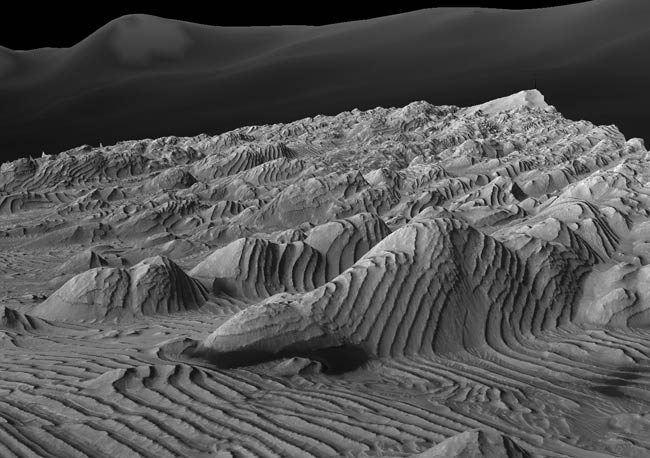
Sequences of cyclic sedimentary rock layers exposed in an unnamed crater (located at 8N, 353E) in Arabia Terra, Mars.
Discovery Indicates Mars Was Habitable
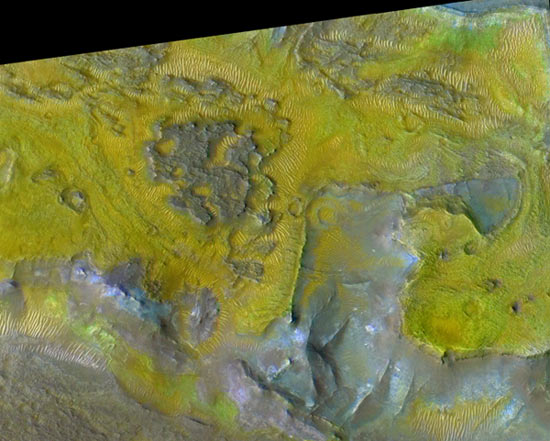
A close-up view of the eroded terrain in Nili Fossae using a CRISM infrared image to colorize a high-resolution HiRISE camera image. Beneath a rough-textured capping rock unit (purple) are banded olivine-bearing layers (yellow) which in some places have been partially altered to carbonate (bright green). The image is approximately 2.5 km across. Credit NASA/JPL/JHUAPL/University of Arizona/Brown University
Signs of Spring on Mars
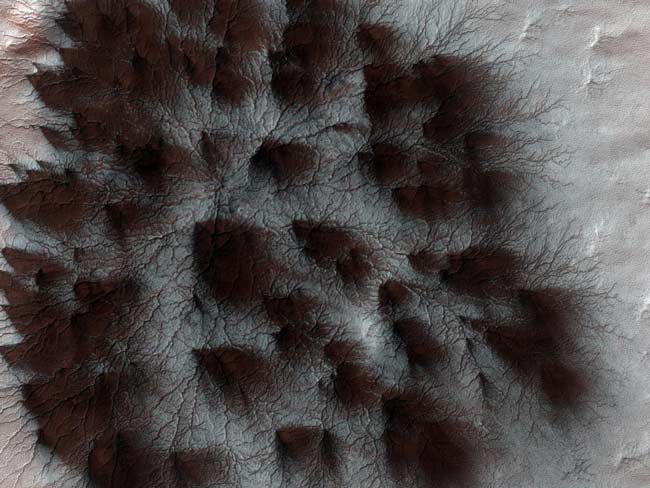
Solid carbon dioxide, commonly known as dry ice, thaws directly to gas and forms starburst patterns under the seasonal carbon dioxide ice caps when spring comes to Mars' polar regions. Image taken by the HiRISE camera on the Mars Reconnaissance Orbiter.
Landforms on Mars Add to Evidence for Recent Water
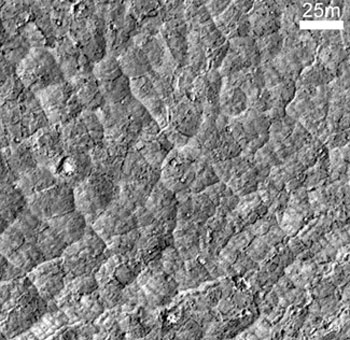
Domed polygons found throughout the Athabasca Vallis head-regions area.
Mars' Victoria Crater Seen from New Angle
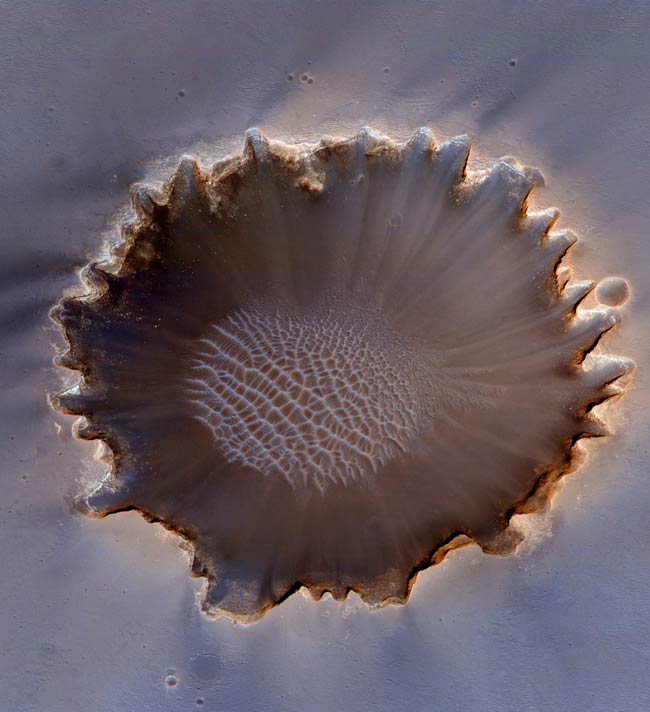
An image of the Victoria Crater on Mars was captured by the High Resolution Imaging Science Experiment on NASA's Mars Reconnaissance Orbiter.
Ancient Mars Lakes Revealed in New Images
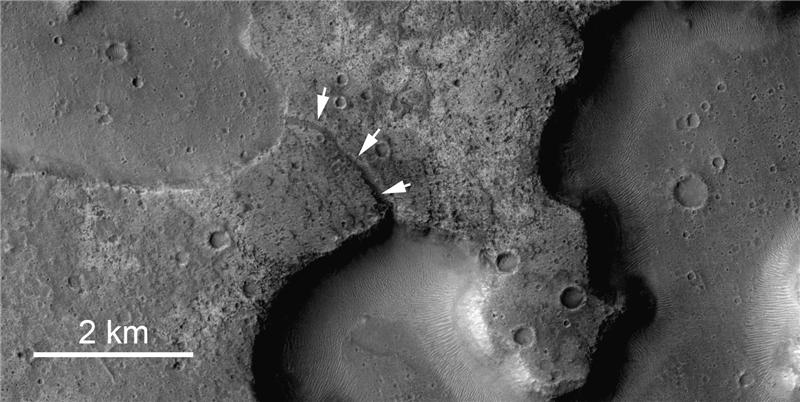
This close-up view of Mars from Mars Reconnaissance Orbiter zooms in on Close-up channels connecting ancient depressions, suggesting that lakes once drained into each other about 3 billion years ago, researchers say.
Strange Mars Photo Includes Tantalizing 'Tree' Illusion
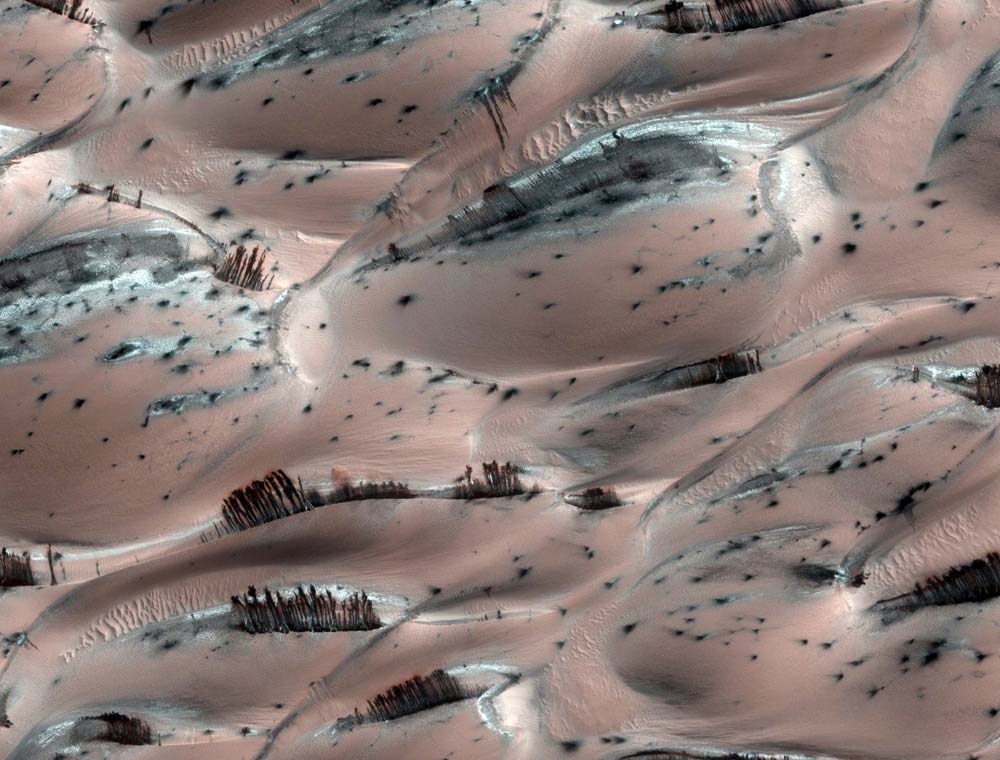
This new image of Mars taken by NASA's Mars Reconnaissance Orbiter shows an optical illusion. What appears to be trees rising from the Martian surface are actually dark streaks of collapsed material running down sand dunes due to carbon dioxide frost evaporation. The image was released in Jan. 2010.
Get the Space.com Newsletter
Breaking space news, the latest updates on rocket launches, skywatching events and more!
Mars Rock Pile Shows a Layered History
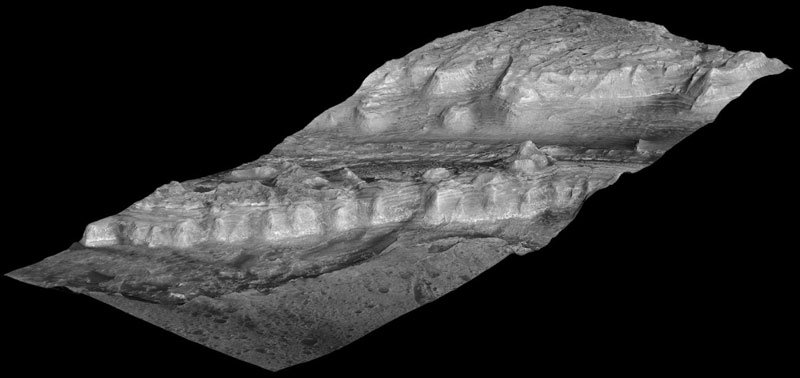
This oblique view shows geological layers of rock exposed on a mound inside Gale Crater on Mars. This is a lower portion of the mound, with the crater floor at the left (and lowest) edge of the image. Layers near the bottom of the mound contain clay and sulfate minerals that indicate wet conditions. Overlying rock layers contain sulfates with little or no clay, consistent with these layers forming in an environment in which water was evaporating and Mars was drying out.
Exaggerated 3-D View Reveals Mars Crater Details
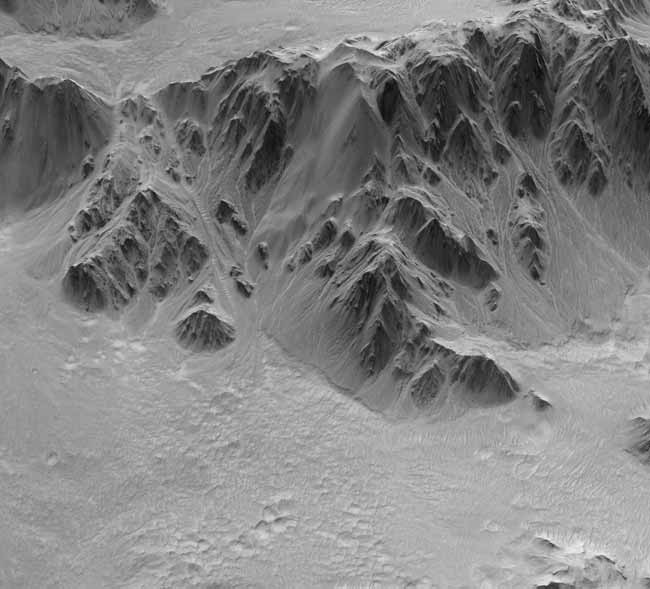
A digital terrain model generated from a stereo pair of images provides this synthesized, oblique view of a portion of the wall terraces of Mojave Crater in the Xanthe Terra region of Mars. This view, in which the vertical dimension is exaggerated three-fold compared with horizontal dimensions, shows the ponding of material backed up behind massive wall-terrace blocks of bedrock.
Hidden Glaciers Are Common on Mars
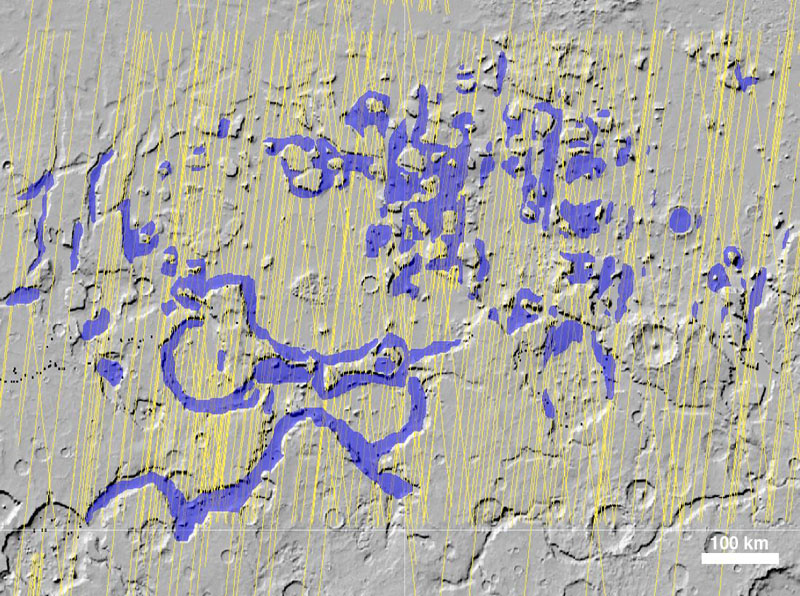
The Shallow Radar instrument on NASA's Mars Reconnaissance Orbiter has detected widespread deposits of glacial ice in the mid-latitudes of Mars. This map of a region known as Deuteronilus Mensae, in the northern hemisphere, shows locations of the detected ice deposits in blue.
Join our Space Forums to keep talking space on the latest missions, night sky and more! And if you have a news tip, correction or comment, let us know at: community@space.com.

Space.com is the premier source of space exploration, innovation and astronomy news, chronicling (and celebrating) humanity's ongoing expansion across the final frontier. Originally founded in 1999, Space.com is, and always has been, the passion of writers and editors who are space fans and also trained journalists. Our current news team consists of Editor-in-Chief Tariq Malik; Editor Hanneke Weitering, Senior Space Writer Mike Wall; Senior Writer Meghan Bartels; Senior Writer Chelsea Gohd, Senior Writer Tereza Pultarova and Staff Writer Alexander Cox, focusing on e-commerce. Senior Producer Steve Spaleta oversees our space videos, with Diana Whitcroft as our Social Media Editor.









